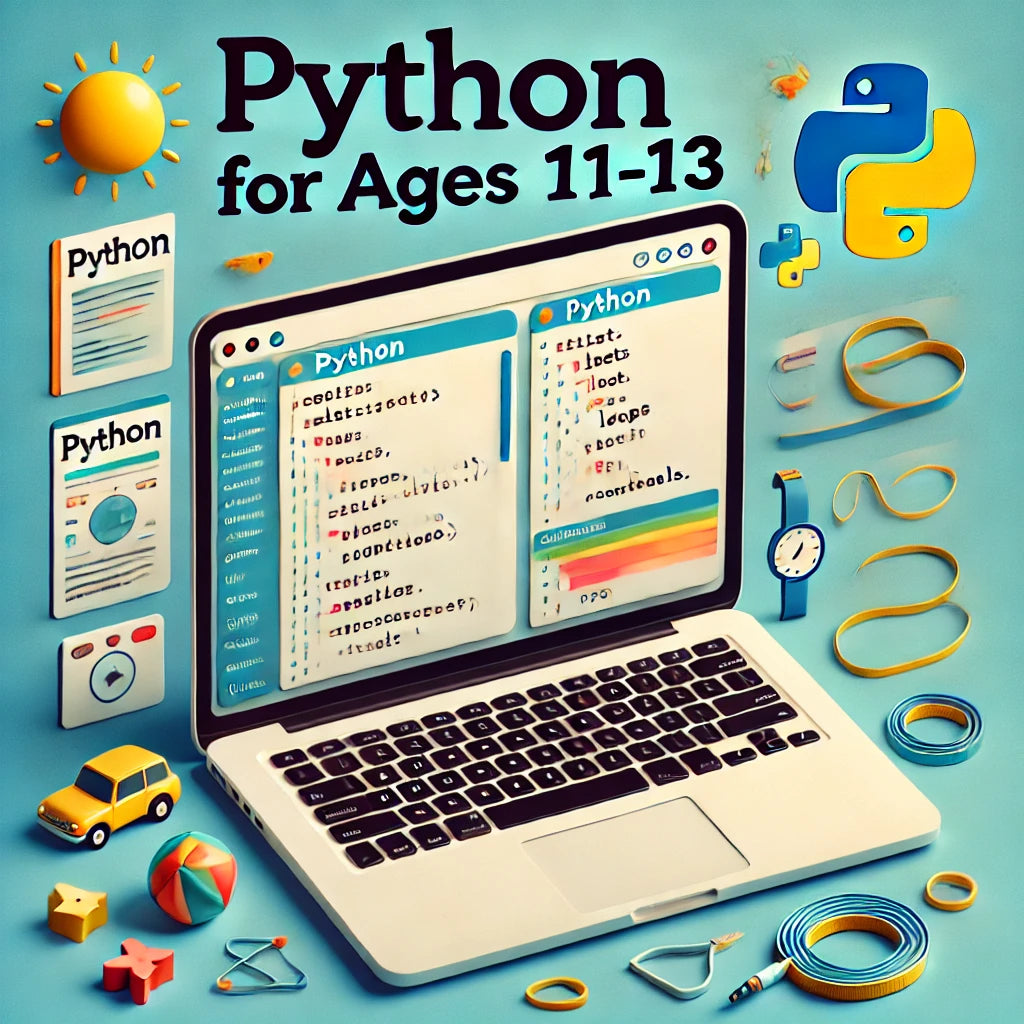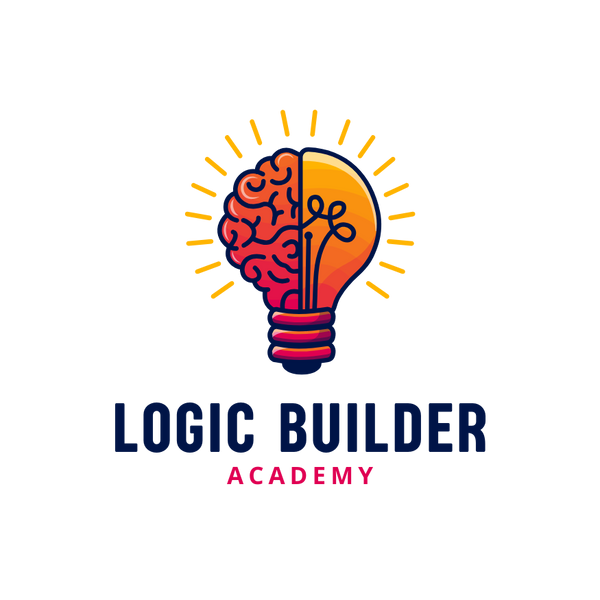Python Fundamentals and Game Development
Python Fundamentals and Game Development
Product Description: "Kids will explore the world of Python programming, starting with the basics and progressing into real-world coding projects! They’ll build exciting games and interactive applications while learning essential coding concepts like functions, lists, and loops. This course will help them develop critical thinking and problem-solving skills, taking their coding to the next level."
Couldn't load pickup availability

Course Outline
Months 1: Intermediate Python Fundamentals
Week 1: Refresher on Python Basics
- Quick review of Python syntax, variables, and basic operations
- Introduction to advanced data types (tuples, dictionaries)
- Activity: Create a program that stores and displays basic student information.
Week 2: More on Loops and Conditionals
- Advanced use of loops (nested loops)
- Using if/else statements in complex scenarios
- Mini Project: Build a number guessing game with multiple difficulty levels.
Week 3: Introduction to Functions and Modular Code
- Writing functions for reusable code
- Passing arguments and returning values
- Activity: Build a simple function that calculates the area of a rectangle and circle.
Week 4: Working with Lists and Dictionaries
- Using dictionaries to store key-value pairs
- Advanced list operations (sorting, filtering)
- Milestone Project: Develop a program that manages a contact list with names, phone numbers, and email addresses.
Months 2: Problem Solving and Projects
Week 5: Exploring Basic File Handling
- Introduction to reading and writing files
- Simple programs that save and retrieve data
- Activity: Create a program that saves a shopping list to a file and reads it back.
Week 6: Debugging and Error Handling
- Learning to identify and fix errors in code
- Introduction to try/except for handling errors gracefully
- Mini Project: Build a program that asks for user input and catches invalid entries.
Week 7: Creating Small Projects Using Functions and Files
- Using functions and file handling to build interactive programs
- Activity: Create a “journal” app where users can add and view journal entries.
Week 8: Milestone Project
- Project: Develop a simple “text editor” that lets users write and save notes to a file.
- Presentation Day: Students present their text editor projects.
Months 3: Introduction to Game Logic and OOP Basics
Week 9: Introduction to Object-Oriented Programming (OOP)
- Basics of classes and objects
- Writing simple classes and methods
- Activity: Create a “Pet” class that tracks a pet’s name, type, and favorite food.
Week 10: Using OOP in Simple Programs
- Adding attributes and methods to classes
- Writing simple programs using objects and classes
- Mini Project: Build a virtual pet program that allows users to “feed” and interact with their pet.
Week 11: Introduction to Simple Game Design
- Planning a basic game using OOP concepts
- Using loops, conditions, and classes to structure a game
- Milestone Project: Develop a simple “dungeon crawler” game where the player navigates through rooms, encountering different challenges.
Week 12: Final Project and Showcase
- Review and enhance the dungeon crawler game with new features.
- Final Presentation: Students showcase their games, explaining how OOP and game logic work.

